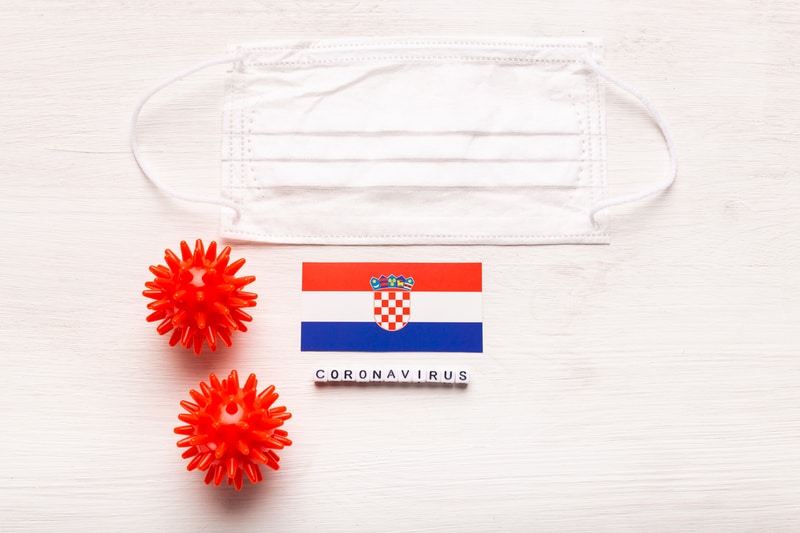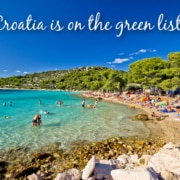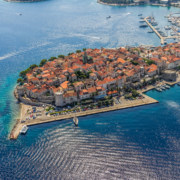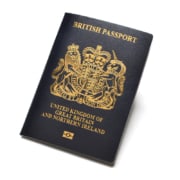Coronavirus Cases in Croatia – Spring 2021 Update
Now that we are in spring 2021, we thought we would start a new post on the rate of coronavirus cases in Croatia, as well as the new restrictions in the country – or rather (fingers crossed!), the lifting of them and any other relevant news.
To see our previous posts on this subject, take a look at Coronavirus Situation in Croatia (updated since November 2020) and Coronavirus in Croatia (updated since March 2020).
NEW Please see our Visiting Croatia in Summer 2021 section for all the latest news on visiting the country this summer.

Coronavirus Situation in Croatia
NOTE As we are very much out of spring, we will stop updating these statistics here. Do see the Koronavirus.hr website for numbers published daily.
Latest update Today, 16th July 2021, 131 new cases have been announced. There are presently 685 active cases in the country. Most active cases are currently located in Zadar county (157 active cases), followed by Split-Dalmatia county (129 active cases) and then the City of Zagreb (70 active cases). Sadly, there have been 8,233 deaths in total in Croatia.
Update Today, 6th July 2021, 96 new cases have been announced. There are presently 528 active cases in the country. Most active cases are currently located in Zadar county (148 active cases), followed by Primorje-Gorski Kotar county (102 active cases) and then the City of Zagreb (62 active cases). Sadly, there have been 8,221 deaths in total in Croatia.
Updated Today, 25th June 2021, 118 new cases have been announced. There are presently 552 active cases in the country. Most active cases are currently located in Zadar county (157 active cases), followed by Primorje-Gorski Kotar county (58 active cases) and then the City of Zagreb (47 active cases). Sadly, there have been 8,196 deaths in total in Croatia.
Updated Today, 18th June 2021, 113 new cases have been announced. There are presently 700 active cases in the country. Most active cases are currently located in the City of Zagreb (121 active cases), followed by Zadar county (90 active cases) and then Primorje-Gorski Kotar county (67 active cases). Sadly, there have been 8,091 deaths in total in Croatia.
Updated Today, 15th June 2021, 96 new cases have been announced. There are presently 767 active cases in the country. Most active cases are currently located in the City of Zagreb (172 active cases), followed by Primorje-Gorski Kotar county (79 active cases) and then Varazdin county (75 active cases). Sadly, there have been 8,091 deaths in total in Croatia.
Update Today, 7th June 2021, 43 new cases have been announced. There are presently 1,243 active cases in the country. Most active cases are currently located in the City of Zagreb (354 active cases), followed by Zagreb county (150 active cases) and then Varazdin county (149 active cases). Sadly, there have been 8,091 deaths in total in Croatia.
Updated Today, 25th May 2021, 323 new cases have been announced. There are presently 3,019 active cases in the country. Most active cases are currently located in the City of Zagreb (807 active cases), followed by Zagreb county (312 active cases) and then Varazdin county (276 active cases). Sadly, there have been 7,950 deaths in total in Croatia.
Updated Today, 21st May 2021, 525 new cases have been announced. There are presently 4,633 active cases in the country. Most active cases are currently located in the City of Zagreb (1,242 active cases), followed by Zagreb county (503 active cases) and then Primorje-Gorski Kotar county (386 active cases). Sadly, there have been 7,856 deaths in total in Croatia.
Updated Today, 18th May 2021, 491 new cases have been announced. There are presently 4,871 active cases in the country. Most active cases are currently located in the City of Zagreb (1,318 active cases), followed by Zagreb county (501 active cases) and then Primorje-Gorski Kotar county (449 active cases). Sadly, there have been 7,765 deaths in total in Croatia.
Updated Today, 11th May 2021, 876 new cases have been announced. There are presently 7,745 active cases in the country. Most active cases are currently located in the City of Zagreb (1,979 active cases), followed by Zagreb county (848 active cases) and then Primorje-Gorski Kotar county (712 active cases). Sadly, there have been 7,549 deaths in total in Croatia.
Updated Today, 7th May 2021, 1,435 new cases have been announced. There are presently 11,265 active cases in the country. Most active cases are currently located in the City of Zagreb (2,839 active cases), followed by Zagreb county (1,269 active cases) and then Split-Dalmatia county (1,077 active cases). Sadly, there have been 7,388 deaths in total in Croatia.
Updated Today, 29th April 2021, 2,439 new cases have been announced. There are presently 14,878 active cases in the country. Most active cases are currently located in the City of Zagreb (3,273 active cases), followed by Split-Dalmatia county (1,751 active cases) and then Primorje-Gorski Kotar county (1,630 active cases). Sadly, there have been 7,001 deaths in total in Croatia.
Updated Today, 23rd April 2021, 2,529 new cases have been announced. There are presently 16,168 active cases in the country. Most active cases are currently located in the City of Zagreb (3,456 active cases), followed by Split-Dalmatia county (2,110 active cases) and then Primorje-Gorski Kotar county (1,935 active cases). Sadly, there have been 6,784 deaths in total in Croatia.
Updated Today, 19th April 2021, 410 new cases have been announced. There are presently 13,812 active cases in the country. Most active cases are currently located in the City of Zagreb (2,961 active cases), followed by Primorje-Gorski Kotar county (1,932 active cases) and then Split-Dalmatia county (1,842 active cases). Sadly, there have been 6,601 deaths in total in Croatia.
Updated Today, 14th April 2021, 3,099 new cases have been announced. There are presently 13,880 active cases in the country. Most active cases are currently located in the City of Zagreb (2,998 active cases), followed by Primorje-Gorski Kotar county (2,154 active cases) and then Split-Dalmatia county (1,992 active cases). Sadly, there have been 6,399 deaths in total in Croatia.
Updated Today, 1st April 2021, 2,422 new cases have been announced. There are presently 12,448 active cases in the country. Most active cases are currently located in Primorje-Gorski Kotar county (2,454 active cases), followed by Split-Dalmatia county (2,229 active cases), and then the City of Zagreb (2,135 cases). Sadly, there have been 5,967 deaths in total in Croatia.
Updated Today, 24th March 2021, 1,891 new cases have been announced. There are presently 7,600 active cases in the country. Most active cases are currently located in Primorje-Gorski Kotar county (1,607 active cases), followed by Split-Dalmatia county (1,326 active cases), and then the City of Zagreb (1,206 cases). Sadly, there have been 5,828 deaths in total in Croatia. There has been a 32% increase in cases in one week.
Updated Today, 16th March 2021, 691 new cases have been announced. There are presently 4,475 active cases in the country. Most active cases are currently located in Primorje-Gorski Kotar county (848 active cases), followed by Split-Dalmatia county (738 active cases), and then the City of Zagreb (644 cases). Sadly, there have been 5,697 deaths in total in Croatia.
Updated Today, 10th March 2021, 962 new cases have been announced. There are presently 3,981 active cases in the country. Most active cases are currently located in Split-Dalmatia county (716 active cases), followed by Primorje-Gorski Kotar county (586 active cases) and then the City of Zagreb (513 cases). Sadly, there have been 5,625 deaths in total in Croatia. This presents about a 25% increase on the number of cases from last week.
Updated Today, 2nd March 2021, 394 new cases have been announced. There are presently 2,893 active cases in the country. Most active cases are currently located in Split-Dalmatia county (489 active cases), followed by the City of Zagreb (391 cases) and Dubrovnik-Neretva county (304 active cases). Sadly, there have been 5,548 deaths in total in Croatia. There was a definite downward trend in coronavirus cases in Croatia up to about mid-February, although since then there has been a slight increase.
News and data on coronavirus Cases in Croatia
The Koronavirus.hr website (in English) publishes daily updates about new case numbers in the country at around 11am each day (Croatian time). That same website also displays a map that shows active cases by county, as well as the total number of cases since the pandemic began.
To compare Croatia’s figures to the rest of the EU, take a look at the website of the European Centre for Disease Prevention and Control (ECDC). This website shows the 14-day cumulative number of cases per 100,000 for all EU countries.
Coronavirus vaccinations in Croatia
Latest update As of 5th July, 1,511,987 people in Croatia have received the first vaccine dose, and 1,175,528 have received both doses. This means that 45% of the adult population (or 37.3% of the total population) of Croatia have received the first dose of the vaccine. The county with the highest rate of vaccination is the City of Zagreb with 43.4% of the total population receiving their first dose (32.4% receiving both doses) whilst the lowest rate is in Sibenik-Knin county with 30.5% of the population receiving their first dose (25.5% receiving both doses). You can see the rate of vaccination in Croatia compared to other European countries on the Our World in Health website.
Updated As of 25th June, 1,467,772 people in Croatia have received the first vaccine dose, and 1,000,279 have received both doses. Additionally, 19,281 people have received a single dose vaccine. This means that in total, 30.4% of the adult population of Croatia have been fully vaccinated, whilst 43.7% of the adult population have received a first dose of a vaccine.
Updated As of 15th June, 1,435,788 people in Croatia have received the first vaccine dose, and 836,456 have received both doses.
Updated As of 15th June, 1,419,924 people in Croatia have received the first vaccine dose, and 744,950 have received both doses.
Update As of 7th June, 1,338,154 people in Croatia have received the first vaccine dose, and 565,519 have received both doses. This means that just over 40% of the adult population of Croatia have received the first dose of the vaccine, with around 17% having received both doses.
Updated As of 25th May, 1,195,088 people in Croatia have received the first vaccine dose, and 410,199 have received both doses.
Updated As of 21st May, 1,149,941 people in Croatia have received the first vaccine dose, and 357,412 have received both doses. Furthermore, on Thursday 20th May, 57,184 vaccine doses were given out, a new record.
Updated As of 18th May, 1,052,032 people in Croatia have received the first vaccine dose, and 317,937 have received both doses.
Updated As of 15th May, over 1 million people (about 30% of the adult population) in Croatia have received the first dose of the vaccine.
Updated As of 8th May, 835,320 people in Croatia have received the first vaccine dose, and 243,440 have received both doses. This means that 25% of the adult population of Croatia has received the first dose, with 6% having received both doses.
Updated As of 7th May, 796,909 people in Croatia have received the first vaccine dose, and 228,792 have received both doses.
Updated As of 23rd April, 438,706 people in Croatia have received the first vaccine dose, and 152,906 have received both doses. (A further 2,360 have received the vaccination, but it unknown which dose this was.)
Updated As of 19th April, 412,143 people in Croatia have received the first vaccine dose, and 139,647 have received both doses. (A further 2,093 have received the vaccination, but it unknown which dose this was.)
Updated As of 1st April, 296,411 people in Croatia have received the first vaccine dose, and 89,313 have received both doses. (A further 1,462 have received the vaccination, but it unknown which dose this was.)
Updated As of 21st March, 232,000 people in Croatia have received the first vaccine dose, and 79,000 have received both doses.
As of 1st March 2021, just over 150,000 people in Croatia have received the first dose of a vaccine against coronavirus. There has been a delay in people receiving the vaccine due to supply (as with other countries in the EU).
Border Restrictions for Croatia
NEW Please see our Visiting Croatia in Summer 2021 section for all the latest news on visiting the country this summer.
The main regulations (which you can see on the Ministry of the Interior website), state that you can enter Croatia if you have one of the following:
- As of 1st July, if you are an EU citizen or travelling from the EU, you can enter Croatia with an EU Digital Covid Certificate.
Otherwise, if you do not yet have an EU Digital Certificate but are travelling from the EU you must have one of the following:
- a negative PCR test undertaken in the previous 72 hours or a rapid antigen test undertaken in the previous 48 hours (at the point of entry); if you are using a rapid antigen test, it must be one recognised by the EU, and the test name and manufacturer must be visible, and the test must be conducted by a healthcare facility/laboratory and signed or confirmed by a doctor
- a vaccination certificate not older than 365 days showing you have received both doses of a vaccine in use in the EU (Pfizer, Moderna, AstaZeneca, Gamaleya, Sinopharm) or a vaccination certificate not older than 365 days showing you have received a single dose (Janssen/Johnson&Johnson) – in the case of single-dose vaccines – and 14 days has passed since that single dose
- a vaccination certificate showing you have received the first dose of the Pfizer, Moderna or Gamaleya vaccine, on the basis of which you can enter Croatia in the period of 22 to 42 days from receiving the vaccine, or 22 to 84 days from receiving the first dose of the AstraZeneca vaccine
- a certificate showing you have recovered from covid AND you have had one dose of a covid vaccine in the eight months since recovering; your vaccine dose must have been administered in the previous 12 months before arrival in Croatia
- a certificate showing you have previously been infected with covid and had a positive PCR or rapid antigen test result in the previous 365 days only (and valid from the 11th day after your positive test result)
- if you don’t have one of the above, you must obtain a PCR or rapid antigen test immediately after arriving in Croatia (at your own expense) and to isolate until you obtain a negative test result – if do not do this, you must isolate for 10 days
If you are travelling to Croatia from outside of the EU, you must have one of the following:
- a negative PCR test undertaken in the previous 72 hours or a rapid antigen test undertaken in the previous 48 hours (at the point of entry); if you are using a rapid antigen test, it must be one recognised by the EU, and the test name and manufacturer must be visible, and the test must be conducted by a healthcare facility/laboratory and signed or confirmed by a doctor
- a vaccination certificate not older than 365 days showing you have received two doses of a vaccine more than 14 days before entry into Croatia (or a vaccination certificate not older than 365 days showing you have received a single dose – in the case of single-dose vaccines – more than 14 days before entry into Croatia)
- a certificate showing you have recovered from covid AND you have had one dose of a covid vaccine in the eight months since recovering; your vaccine dose must have been administered in the previous 12 months before arrival in Croatia
- a certificate showing you have previously been infected with covid and had a positive PCR or rapid antigen test result in the previous 365 days only (and valid from the 11th day after your positive test result)
- if you don’t have one of the above, you must obtain a PCR or rapid antigen test immediately after arriving in Croatia (at your own expense) and to isolate until you obtain a negative test result – if do not do this, you must isolate for a full 10 days
ALL children under the age of 12 who are travelling accompanied by a parent or guardian are exempt from having to provide a negative test result (or to self-isolate) providing their parent or guardian adheres to the above entry regulations.
As of 26th July,ALL travellers (even if they are double-vaccinated) from the UK, Cyprus, Russia and India must present proof of a negative PCR test taken in the previous 72 hours before entry into Croatia, or a negative rapid antigen test taken in the previous 48 hours before entry. As of 1st October, this no longer applies. See Double vaccinated UK travellers to Croatia no longer need a negative test.
If you are a third-country national, you must also adhere to the above regulations. Third-country nationals (which UK citizens now are!) are permitted to visit if you are:
- travelling for tourist reasons and have proof of a paid accommodation booking in a hotel, camp, private renter or rented vessel and other forms of tourist accommodation
- HOWEVER, please note that this requirement now no longer exists for travellers from the following countries: Albania, Armenia, Australia, Azerbaijan, Bosnia & Heregovina, Brunei, Canada, China, Hong Kong, Israel, Japan, Jordan, Kosovo, Lebanon, Macao, Montenegro, Moldova, New Zealand, North Macedonia, Qatar, Saudia Arabia, Serbia, Singapore, South Korea, Taiwan, Ukraine, USA
Travellers from South Africa and Zanzibar (Tanzania) must show proof of a negative PCR test undertaken in the previous 48 hours AND must also isolate for 14 days upon arrival in Croatia. (The isolation period can be shortened if a PCR test – at your own expense – is taken on day 7 at an authorised testing facility.)
Travellers fromBrazil – regardless of vaccination status – need to show a negative PCR test (taken in the previous 72 hours) or a negative rapid antigen test (taken in the previous 48 hours) to enter Croatia but, as of 1st October, no longer need to quarantine for 14 days.
There are some exceptions to the above rules (eg. healthcare workers do not need to present a negative test etc). To see all regulations regarding entry into Croatia, take a look at the Ministry of the Interior website.
Current Restrictions in Croatia
The rules on covid-related restrictions in Croatia changed as of 28th May. Please see our post on Croatia Travel Restrictions 2021 to see these.











